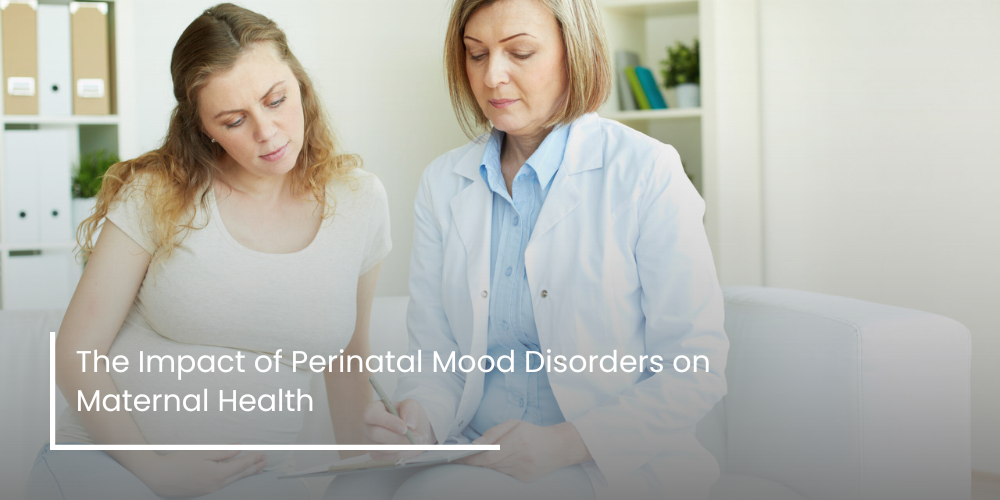Addressing Perinatal Mood & Anxiety Disorders in OB-GYN Practice
Pregnancy is a remarkable journey filled with anticipation, but it can also be a time of significant emotional and mental challenges.
Perinatal mood and anxiety disorders (PMADs) are a group of conditions that affect many expectant mothers. These disorders can profoundly impact both the mother and the developing child.
In OB-GYN practice, addressing PMADs is crucial for the well-being of patients. Fortunately, modern technology, including Electronic Health Record (EHR) systems, can play a pivotal role in identifying and managing these disorders effectively.
Let’s look deeper into perinatal mood and anxiety disorders to uncover how EHR systems can empower healthcare providers to provide comprehensive care and support to expectant mothers facing these challenges.
Understanding Perinatal Mood and Anxiety Disorders
PMADs encompass a range of conditions, including:
- Prenatal Depression: Depressive symptoms occurring during pregnancy.
- Postpartum Depression: Depressive symptoms occurring after childbirth.
- Perinatal Anxiety: Excessive worry, panic attacks, or anxiety disorders during pregnancy or postpartum.
- Post-Traumatic Stress Disorder (PTSD): Often triggered by a traumatic childbirth experience.
- Postpartum Obsessive-Compulsive Disorder (OCD): Intrusive, distressing thoughts and compulsive behaviors.
- Postpartum Psychosis: A rare but severe condition characterized by hallucinations and delusions.
The Importance of Early Detection and Intervention
Addressing PMADs is critical for several reasons:
- Maternal Well-being: PMADs can lead to significant emotional suffering for the mother, affecting her ability to care for herself and her baby.
- Infant Development: The emotional state of the mother can influence infant development and attachment.
- Family Dynamics: PMADs can strain relationships with partners and other family members.
- Long-term Effects: Left untreated, PMADs can have long-term consequences for both the mother and child.
What OB-GYNs Do for PMADs
In the context of pregnancy, OB-GYNs (Obstetricians and Gynecologists) are central to the care of expectant mothers. They don’t just focus on the physical aspects of pregnancy but also prioritize the emotional and mental well-being of patients. To help patients dealing with PMADs, OB-GYNs typically take the following crucial steps:
1. Screening and Assessment
During routine prenatal visits, healthcare providers can use standardized screening tools to assess the mental health of their patients. These tools help identify symptoms of depression, anxiety, or other PMADs early on, enabling timely intervention and support for expectant mothers facing these challenges.
2. Education and Awareness
OB-GYNs educate their patients about PMADs, their symptoms, and the importance of seeking help. This includes discussing the emotional ups and downs experienced during pregnancy and postpartum, distinguishing them from more serious mental health concerns. Patients are also provided with resources and information on support groups or mental health services available in their community to ensure they have access to the care they need.
3. Referrals and Collaboration
In cases where PMADs are identified or suspected, OB-GYNs collaborate with mental health professionals, such as psychiatrists, psychologists, or therapists, to ensure patients receive specialized care. They provide referrals and facilitate communication between the patient and mental health experts. This collaborative approach ensures a comprehensive and coordinated response to the patient’s mental health needs, improving the chances of effective treatment and recovery.
4. Treatment Options
OB-GYNs may offer a range of treatment options depending on the severity of the PMADs. This can include therapy, medication, lifestyle changes, or a combination of these approaches. The choice of treatment is tailored to the individual needs and preferences of the patient, ensuring that the treatment plan aligns with what works best for them in their unique circumstances. Additionally, OB-GYNs closely monitor the progress of the chosen treatment and make adjustments as needed to optimize outcomes.
5. Monitoring and Follow-Up
Continuity of care is essential. OB-GYNs ensure patients receive ongoing monitoring and follow-up to track their progress and adjust treatment plans as necessary. This can help patients stay on the path to recovery and well-being. Regular follow-up appointments also provide a valuable opportunity for patients to discuss any concerns or changes in their condition, fostering a supportive and responsive healthcare environment.
6. Supportive Environment
Creating a supportive and empathetic environment is crucial. OB-GYNs and their healthcare teams strive to make patients feel heard, understood, and valued. Open and non-judgmental communication is vital to fostering trust and encouraging patients to seek help when needed.
7. Incorporating EHR Technology
EHR systems come into play in facilitating many of these essential steps. Electronic Health Record systems streamline the documentation of mental health assessments, referrals, treatment plans, and progress monitoring.
This digital infrastructure ensures that patient data is readily accessible, enabling OB-GYNs to provide timely and coordinated care.
How EHR Systems Can Help Address Mental Health During Pregnancy
Electronic Health Record systems can be invaluable tools for OB-GYN practitioners in addressing PMADs:
1. Screening and Assessment
EHR systems can incorporate standardized screening tools to identify patients at risk for PMADs during prenatal visits. By routinely assessing mental health, practitioners can detect issues early and initiate appropriate interventions.
2. Data Integration
EHRs allow seamless patient data integration, including mental health assessments and treatment plans. This comprehensive view of the patient’s health helps practitioners make informed decisions and provide holistic care.
3. Alerts and Reminders
EHR systems can generate alerts and reminders for follow-up appointments and screenings, ensuring no patient falls through the cracks in their mental health care.
4. Secure Communication
EHRs provide a secure platform for patients to communicate with their healthcare providers. This can encourage open dialogue about mental health concerns and facilitate timely interventions.
5. Evidence-Based Care
EHRs can provide access to evidence-based treatment guidelines for PMADs, helping practitioners make informed treatment decisions and improve patient outcomes.
Equipping Mothers for a Healthier Tomorrow
Addressing perinatal mood and anxiety disorders in OB-GYN practice is essential for mothers’ and infants’ well-being. EHR systems can significantly assist healthcare providers in identifying, managing, and treating these disorders effectively.
By incorporating mental health assessments into routine prenatal care and leveraging the capabilities of EHR technology, OB-GYN practitioners can play a vital role in supporting the mental health of expectant mothers, ultimately leading to healthier outcomes for patients and their families.
For more information, see DigiCharts website or contact us.





